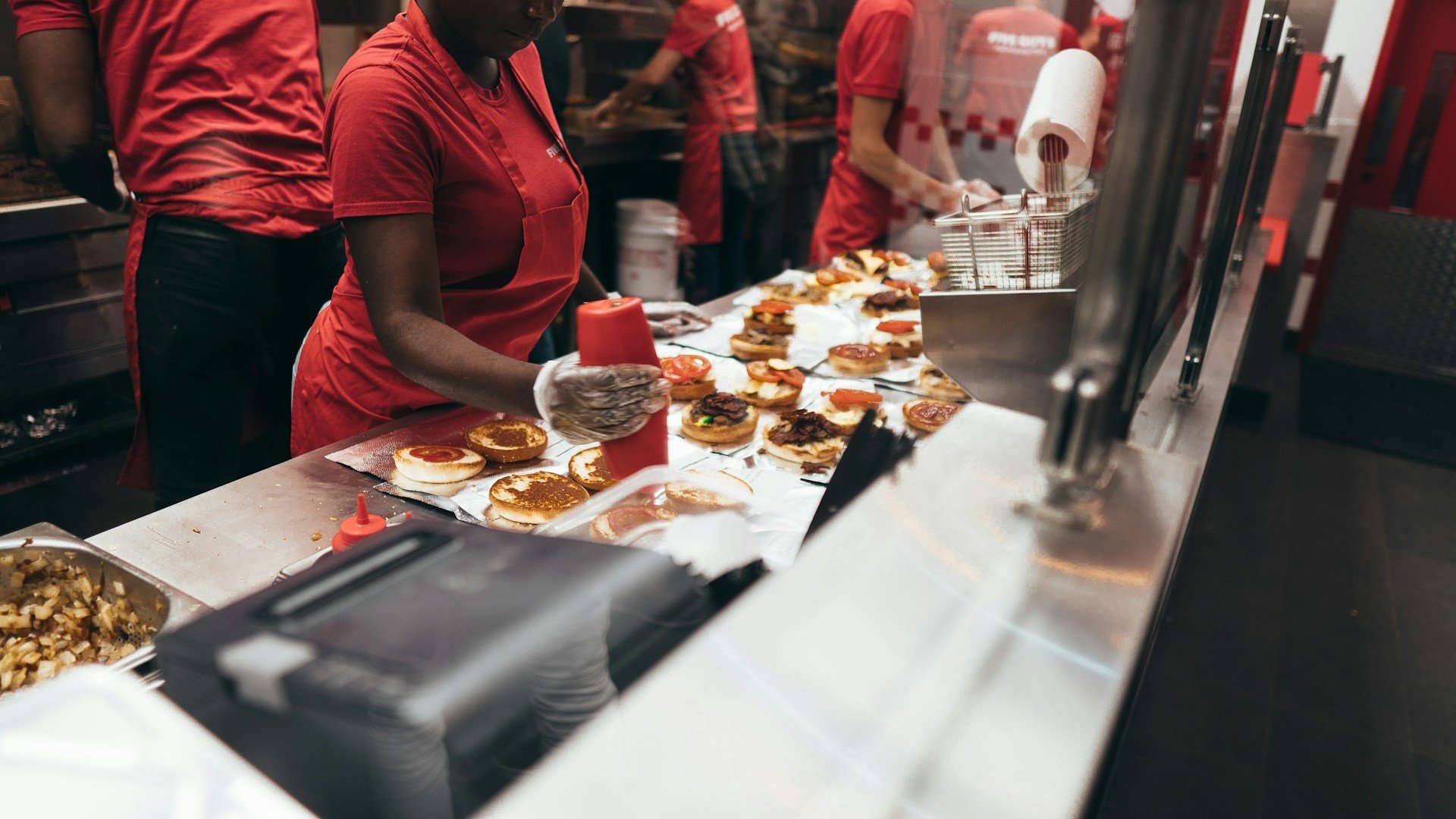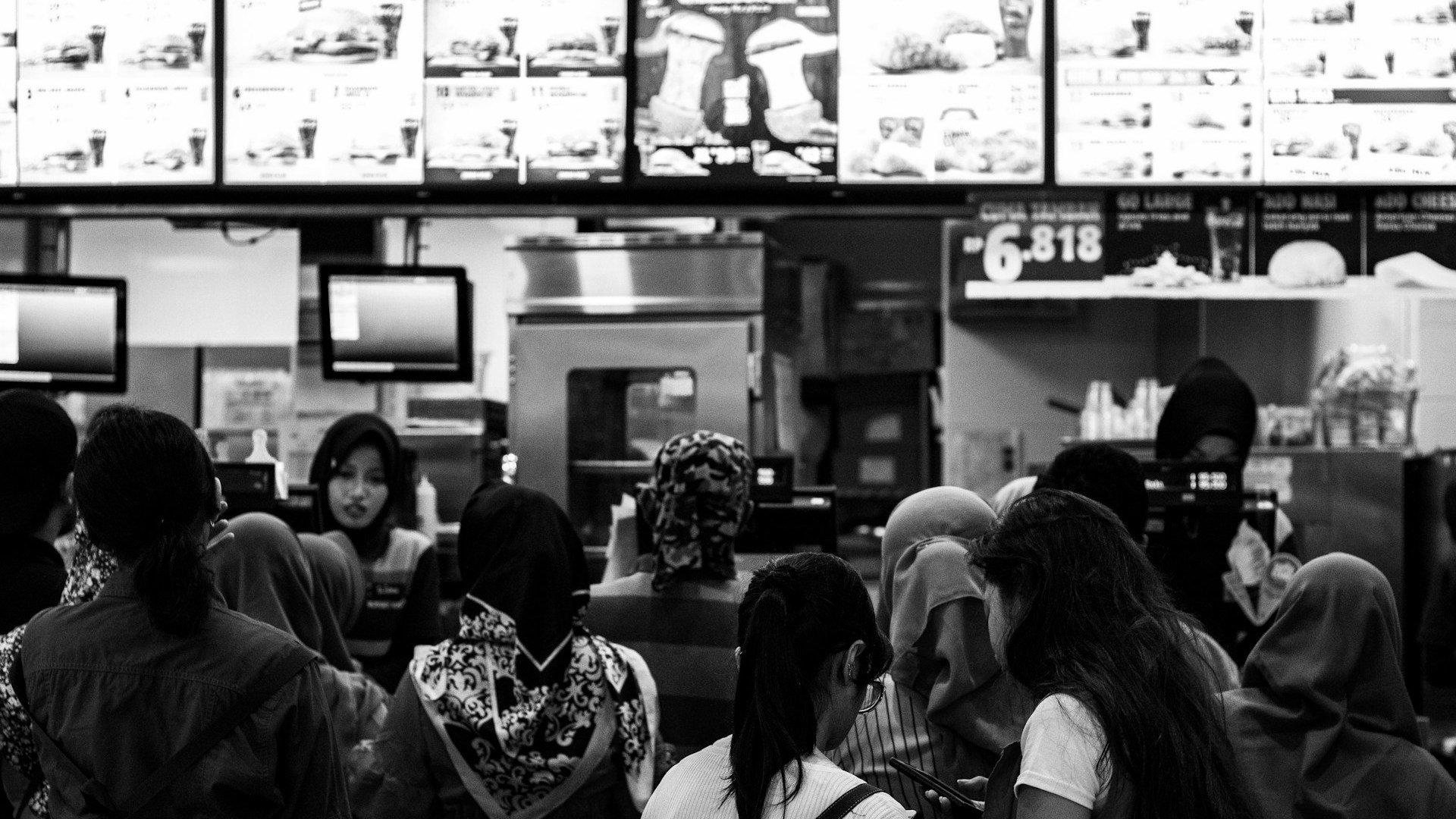Fast food franchisees in California have chosen to respond to rising labor costs by cutting hours and reducing the number of workers on shift at any one time.
The minimum wage in California recently rose to $20 per hour, a move that may be affecting fast food chains in particular, who had previously relied on cheaper labor.
Worker Spending More Time With Son

One Pizza Hut worker, Julieta Garcia, tells AP News that she went from working 6 days a week to 5 and subsequently found herself with more time to spend with her family.
She is also earning more money, which means she can now pay her phone bill and take her son to the doctor to check on a tonsil issue.
Wendy’s Worker Putting Money Back Into Economy

One Wendy’s worker, Howard Lewis, who had previously retired, has been investing the money from his bumper pay checks straight back into the economy.
“Today was payday, and I bought $500 worth of stock,” he told AP News.
Gavin Newsom Defends Wage Increase

Governor Gavin Newsom took to defending the minimum wage increase, which affected over half a million Californian workers.
“We are a state that gives a damn about fast food workers — who are predominantly women — working two and a half jobs to get by,” he said, on social media.
But Restaurants Have to Make Cuts

Lawrence Cheng’s family owns several Wendy’s stores that he says have been forced into making changes to accommodate the new rules.
Cheng says: “We kind of just cut where we can. I schedule one less person, and then I come in for that time that I didn’t schedule, and I work that hour.”
Summer May Aid Local Businesses

Summer months regularly come with increased business and help to soothe profit margins.
Cheng hopes that students having time off from education and families travelling and eating out will help to cover the costs associated with the increase in wages.
Effects of Previous Wage Increases

Past wage increases have led to higher costs, but not necessarily job losses, according to research.
A study by Berkeley, University of California, showed that California and New York nearly doubled their minimum wage in the past, to $15, in a previous increase and job growth continued.
Job Growth in Response to Minimum Wage Increase

In terms of job growth in the sector, the fast food industry has seen improvements since the new minimum wage law came in.
In the 2 months following the passing of the law on April 1, the fast food industry has actually gained around 8000 jobs in comparison to the same period last year.
Restaurants Having to Cut Costs Elsewhere

Jobs may be growing but, according to Jot Condie, CEO of the California Restaurant Association, businesses will be forced to make unfavorable decisions elsewhere.
Condie predicts: “They don’t have a lot of options beyond increasing prices, reducing hours of operation, or scaling back the size of their workforce.”
Wages Attracting Better Candidates?

Joseph Bryant of the Service Employees International Union supported the wage increase, and posits another potential benefit to the increase.
He says that “the higher wage is already attracting better job candidates, thus reducing turnover.”


